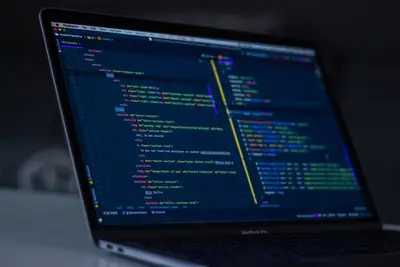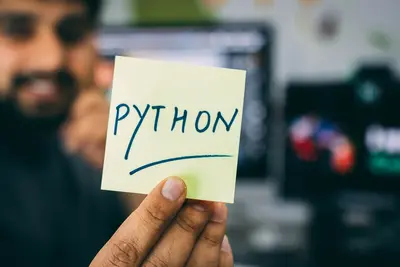Installing Compilers and Build Tools in Alpine Linux
Alpine Linux provides a comprehensive suite of compilers and build tools for software development. Let’s set up a complete development environment with all essential build tools! 🛠️
Why Alpine for Development?
- Minimal base: Start with only what you need
- musl libc: Lightweight C library
- Modern toolchain: Up-to-date compilers
- Container-friendly: Perfect for build containers
- Security focused: Hardened by default
Essential Build Tools Overview
Key components:
- GCC: GNU Compiler Collection
- Clang/LLVM: Modern C/C++ compiler
- Make: Build automation tool
- CMake: Cross-platform build system
- pkg-config: Library configuration tool
- autotools: GNU build system
Step 1: Install Basic Build Environment
Install build-base Meta Package
# Update package index
sudo apk update
# Install essential build tools
sudo apk add build-base
# This installs:
# - gcc (GNU C compiler)
# - g++ (GNU C++ compiler)
# - make
# - musl-dev (C library headers)
# - libc-dev
# - fortify-headers
# - patchVerify Installation
# Check GCC version
gcc --version
# Check G++ version
g++ --version
# Check Make version
make --version
# Check available tools
which gcc g++ make ld arStep 2: Install Additional Compilers
Install Clang/LLVM
# Install Clang compiler
sudo apk add clang clang-dev llvm llvm-dev
# Install Clang extras
sudo apk add clang-extra-tools
# Verify Clang installation
clang --version
clang++ --versionInstall Other Language Compilers
# Rust compiler
sudo apk add rust cargo
# Go compiler
sudo apk add go
# Python development
sudo apk add python3-dev py3-pip
# Java development
sudo apk add openjdk11-jdk
# Node.js development
sudo apk add nodejs npmStep 3: Configure Build Tools
Set Up CMake
# Install CMake
sudo apk add cmake cmake-doc
# Install CMake extras
sudo apk add extra-cmake-modules
# Verify CMake
cmake --version
# Create CMake example
mkdir ~/cmake-example && cd ~/cmake-exampleCreate CMakeLists.txt:
cmake_minimum_required(VERSION 3.10)
project(HelloWorld)
set(CMAKE_CXX_STANDARD 17)
set(CMAKE_CXX_STANDARD_REQUIRED ON)
# Add executable
add_executable(hello main.cpp)
# Find packages example
find_package(Threads REQUIRED)
target_link_libraries(hello ${CMAKE_THREAD_LIBS_INIT})Configure GNU Autotools
# Install autotools
sudo apk add autoconf automake libtool
# Install additional tools
sudo apk add pkgconf m4 gettext-dev
# Verify installation
autoconf --version
automake --version
libtool --versionStep 4: Install Development Libraries
Common Development Libraries
# SSL/TLS development
sudo apk add openssl-dev
# Compression libraries
sudo apk add zlib-dev bzip2-dev xz-dev
# Database development
sudo apk add sqlite-dev postgresql-dev mariadb-dev
# Network development
sudo apk add curl-dev libssh2-dev
# XML/JSON libraries
sudo apk add libxml2-dev jansson-dev
# Image libraries
sudo apk add libpng-dev libjpeg-turbo-devGUI Development Libraries
# GTK development
sudo apk add gtk+3.0-dev
# Qt development
sudo apk add qt5-qtbase-dev
# SDL development
sudo apk add sdl2-dev sdl2_image-dev sdl2_ttf-devStep 5: Set Up Cross-Compilation
Install Cross-Compilers
# ARM cross-compiler
sudo apk add gcc-arm-none-eabi
# MinGW for Windows cross-compilation
sudo apk add mingw-w64-gcc
# Multi-architecture support
sudo apk add qemu-user-staticConfigure Cross-Compilation Environment
# Create toolchain file for CMake
cat > ~/toolchain-arm.cmake << 'EOF'
set(CMAKE_SYSTEM_NAME Linux)
set(CMAKE_SYSTEM_PROCESSOR arm)
set(CMAKE_C_COMPILER arm-none-eabi-gcc)
set(CMAKE_CXX_COMPILER arm-none-eabi-g++)
set(CMAKE_FIND_ROOT_PATH_MODE_PROGRAM NEVER)
set(CMAKE_FIND_ROOT_PATH_MODE_LIBRARY ONLY)
set(CMAKE_FIND_ROOT_PATH_MODE_INCLUDE ONLY)
EOF
# Use with CMake
cmake -DCMAKE_TOOLCHAIN_FILE=~/toolchain-arm.cmake ..Step 6: Version Control and Build Systems
Install Version Control
# Git
sudo apk add git git-lfs
# Subversion
sudo apk add subversion
# Mercurial
sudo apk add mercurialModern Build Systems
# Ninja build system
sudo apk add ninja
# Meson build system
sudo apk add meson
# Bazel (build from source or use container)
# Bazel is not in Alpine repos, use Docker:
docker run -v $PWD:/workspace gcr.io/bazel-public/bazel:latest build //...Step 7: Create Development Environment
Set Up Development Directories
# Create development structure
mkdir -p ~/dev/{projects,tools,libs}
# Set up environment variables
cat >> ~/.profile << 'EOF'
# Development environment
export DEVHOME=$HOME/dev
export PATH=$PATH:$DEVHOME/tools/bin
export LD_LIBRARY_PATH=$LD_LIBRARY_PATH:$DEVHOME/libs/lib
export PKG_CONFIG_PATH=$PKG_CONFIG_PATH:$DEVHOME/libs/lib/pkgconfig
export CFLAGS="-I$DEVHOME/libs/include"
export LDFLAGS="-L$DEVHOME/libs/lib"
EOF
source ~/.profileCreate Build Script Templates
# Create Makefile template
cat > ~/dev/Makefile.template << 'EOF'
CC = gcc
CXX = g++
CFLAGS = -Wall -Wextra -O2 -g
CXXFLAGS = $(CFLAGS) -std=c++17
LDFLAGS =
LIBS =
SRCS = $(wildcard *.c)
OBJS = $(SRCS:.c=.o)
TARGET = myprogram
all: $(TARGET)
$(TARGET): $(OBJS)
$(CC) $(LDFLAGS) -o $@ $^ $(LIBS)
%.o: %.c
$(CC) $(CFLAGS) -c $< -o $@
clean:
rm -f $(OBJS) $(TARGET)
.PHONY: all clean
EOFStep 8: Compile Example Programs
C Program Example
// hello.c
#include <stdio.h>
#include <stdlib.h>
int main(int argc, char *argv[]) {
printf("Hello from Alpine Linux!\n");
printf("Compiler: %s\n", __VERSION__);
printf("C Standard: %ld\n", __STDC_VERSION__);
return 0;
}Compile and run:
# With GCC
gcc -o hello hello.c
./hello
# With Clang
clang -o hello-clang hello.c
./hello-clang
# With optimization
gcc -O3 -march=native -o hello-opt hello.cC++ Program Example
// hello.cpp
#include <iostream>
#include <vector>
#include <algorithm>
int main() {
std::vector<int> numbers = {5, 2, 8, 1, 9};
std::sort(numbers.begin(), numbers.end());
std::cout << "Sorted numbers: ";
for (const auto& n : numbers) {
std::cout << n << " ";
}
std::cout << std::endl;
return 0;
}Compile and run:
# With G++
g++ -std=c++17 -o hello-cpp hello.cpp
./hello-cpp
# With Clang++
clang++ -std=c++17 -o hello-cpp-clang hello.cpp
./hello-cpp-clangStep 9: Building Complex Projects
Build a Library
# Create static library
cat > mylib.c << 'EOF'
#include "mylib.h"
int add(int a, int b) {
return a + b;
}
int multiply(int a, int b) {
return a * b;
}
EOF
cat > mylib.h << 'EOF'
#ifndef MYLIB_H
#define MYLIB_H
int add(int a, int b);
int multiply(int a, int b);
#endif
EOF
# Compile to object file
gcc -c mylib.c -o mylib.o
# Create static library
ar rcs libmylib.a mylib.o
# Create shared library
gcc -shared -fPIC -o libmylib.so mylib.cUse the Library
// main.c
#include <stdio.h>
#include "mylib.h"
int main() {
printf("5 + 3 = %d\n", add(5, 3));
printf("4 * 7 = %d\n", multiply(4, 7));
return 0;
}Compile with library:
# With static library
gcc main.c -L. -lmylib -o myapp
# With shared library
gcc main.c -L. -lmylib -o myapp-shared
export LD_LIBRARY_PATH=$LD_LIBRARY_PATH:.
./myapp-sharedStep 10: Debugging and Profiling Tools
Install Debugging Tools
# GDB debugger
sudo apk add gdb
# Valgrind memory debugger
sudo apk add valgrind valgrind-dev
# strace system call tracer
sudo apk add strace
# ltrace library call tracer
sudo apk add ltraceInstall Profiling Tools
# Performance analysis
sudo apk add perf
# Code coverage
sudo apk add gcovr
# Static analysis
sudo apk add cppcheck
# Address sanitizer (built into GCC/Clang)
# Compile with: gcc -fsanitize=address -g program.cDebug Example
# Compile with debug symbols
gcc -g -O0 -o debug-program program.c
# Debug with GDB
gdb ./debug-program
(gdb) break main
(gdb) run
(gdb) step
(gdb) print variable_name
(gdb) quit
# Check memory leaks
valgrind --leak-check=full ./debug-program
# Trace system calls
strace ./program
# Profile with perf
perf record ./program
perf reportStep 11: Package Management for Development
Create Alpine Package
# Install Alpine SDK
sudo apk add alpine-sdk
# Add user to abuild group
sudo addgroup $USER abuild
# Generate signing key
abuild-keygen -a -i
# Create package directory
mkdir -p ~/packages/mypackage
cd ~/packages/mypackage
# Create APKBUILD
cat > APKBUILD << 'EOF'
# Maintainer: Your Name <[email protected]>
pkgname=mypackage
pkgver=1.0.0
pkgrel=0
pkgdesc="My custom package"
url="https://example.com"
arch="all"
license="MIT"
depends=""
makedepends="gcc make"
source="$pkgname-$pkgver.tar.gz"
build() {
cd "$srcdir/$pkgname-$pkgver"
make
}
package() {
cd "$srcdir/$pkgname-$pkgver"
make DESTDIR="$pkgdir" install
}
EOF
# Build package
abuild -rStep 12: Optimization and Best Practices
Compiler Optimization Flags
# Size optimization
gcc -Os -s program.c -o program-small
# Speed optimization
gcc -O3 -march=native -mtune=native program.c -o program-fast
# Link-time optimization
gcc -O3 -flto program.c -o program-lto
# Profile-guided optimization
gcc -fprofile-generate program.c -o program
./program # Run with typical workload
gcc -fprofile-use -O3 program.c -o program-pgoSecurity Hardening
# Compile with security features
gcc -D_FORTIFY_SOURCE=2 \
-fstack-protector-strong \
-Wformat -Wformat-security \
-fPIE -pie \
-o secure-program program.c
# Check security features
checksec --file=secure-programTroubleshooting Common Issues
Missing Headers
# Find which package provides a header
apk search -v 'lib*-dev' | grep -i header_name
# Common solutions
sudo apk add linux-headers # For system headers
sudo apk add musl-dev # For C library headersLinking Errors
# Find library location
pkg-config --libs library_name
# Manual library search
find /usr -name "libname.so*"
# Check library dependencies
ldd programBuild Failures
# Verbose compilation
make V=1
# Clean build
make clean && make
# Check environment
env | grep -E '(CC|CXX|CFLAGS|LDFLAGS)'Conclusion
You’ve successfully set up a comprehensive development environment on Alpine Linux! You now have:
✅ Complete compiler toolchain (GCC, Clang) ✅ Build automation tools (Make, CMake) ✅ Development libraries and headers ✅ Debugging and profiling tools ✅ Cross-compilation capabilities ✅ Package building tools
Alpine Linux provides a lightweight yet powerful platform for software development. Happy coding! 🔨




